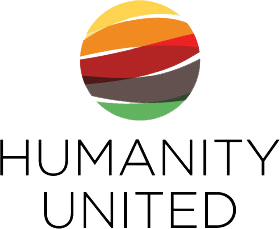Step 5. Ensuring Good Practice in Human Resources Management
As you have seen in previous sections of this Fair Hiring Toolkit, even before they arrive at the host facility, migrant workers are inherently vulnerable to conditions of forced labor, especially when recruitment and hiring have been outsourced to labor recruiters.
Companies should also be aware that some common management practices can actually increase the vulnerability of migrant workers to exploitation. It is important to understand what drives these practices, how they can be avoided without hampering the company’s need to achieve business objectives, and to develop appropriate management controls to mitigate the risks. All key staff in the facility – including human resources personnel and line-managers – should be trained in positive, risk-mitigating management strategies. The tool to the right outlines some good management practices that facilities can implement.
It is also important to note that outsourcing on-site management functions – such as the handling grievance mechanisms, disciplinary procedures, and the provision of wages, benefits or housing – to labor recruiters can further exacerbate the vulnerability of migrant workers to exploitation. In fact, the inherent risks of this practice are so great that some brands prohibit their suppliers from outsourcing on-site human resource functions to labor recruiters.
If the outsourcing of human resource functions on-site is an unavoidable choice, then the supplier must put in place concrete measures to ensure that migrant workers are protected.
TOOL 1: Sample Strategies for Managing Risk and Promoting Good Practice in the On-Site Management of Migrant Workers
This Tool spells out some of the most common compliance violations that Verité sees in the on-site management of migrant workers. In some cases, these violations come about as a result of the outsourcing of management functions to labor recruiters. In other cases, the violations may stem from choices made by managers at the facility itself. Either way, there are clear steps that can be taken to mitigate the risk of such compliance violations, and to promote good practice in the management of migrant workers in company facilities. This Tool matches those good practices and management controls with the compliance risks that they help to address.
| SAMPLE CODE OF CONDUCT PROVISIONS | |
|---|---|
| RISKS | GOOD PRACTICE TO MANAGE RISKS |
|
|
| POST-ARRIVAL REQUIREMENTS & DOCUMENTS PROCESSING | |
|---|---|
| RISKS | GOOD PRACTICE TO MANAGE RISKS |
|
|
| WAGES & BENEFITS | |
|---|---|
| RISKS | GOOD PRACTICE TO MANAGE RISKS |
|
|
| DEPOSITS | |
|---|---|
| RISKS | GOOD PRACTICE TO MANAGE RISKS |
|
|
| DOCUMENT RETENTION | |
|---|---|
| RISKS | GOOD PRACTICE TO MANAGE RISKS |
|
|
| DORMITORY & HOUSING | |
|---|---|
| RISKS | GOOD PRACTICE TO MANAGE RISKS |
|
|
| WORKER FEEDBACK & COMMUNICATION | |
|---|---|
| RISKS | GOOD PRACTICE TO MANAGE RISKS |
|
|
| HUMANE TREATMENT | |
|---|---|
| RISKS | GOOD PRACTICE TO MANAGE RISKS |
|
|

For Brands
Framework for Action: What Can Brands Do? >>
1. Improving Codes of Conduct and Company Policies >>
2. Raising Awareness and Building Capacity >>
3. Strengthening Assessments & Social Audits >>
4. Taking Corrective Action & Developing Systems Improvement Plans >>
5. Reporting & Transparency >>
6. Multi-Stakeholder & Multi-Brand Engagement >>
7. Public Policy Advocacy >>
For Suppliers
Framework for Action: What Can Suppliers Do? >>
1. Improving Codes of Conduct & Company Policies >>
2. Raising Awareness & Building Capacity >>
3. Screening & Evaluating Labor Recruiters >>
4. Managing Labor Recruiters & Monitoring for Ethical Recruitment & Hiring >>
5. Ensuring Good Practice in Human Resources Management >>
6. Establishing Effective Grievance Mechanisms & Protection for Whistleblowers >>
7. Taking Corrective Action & Developing Systems Improvement >>
